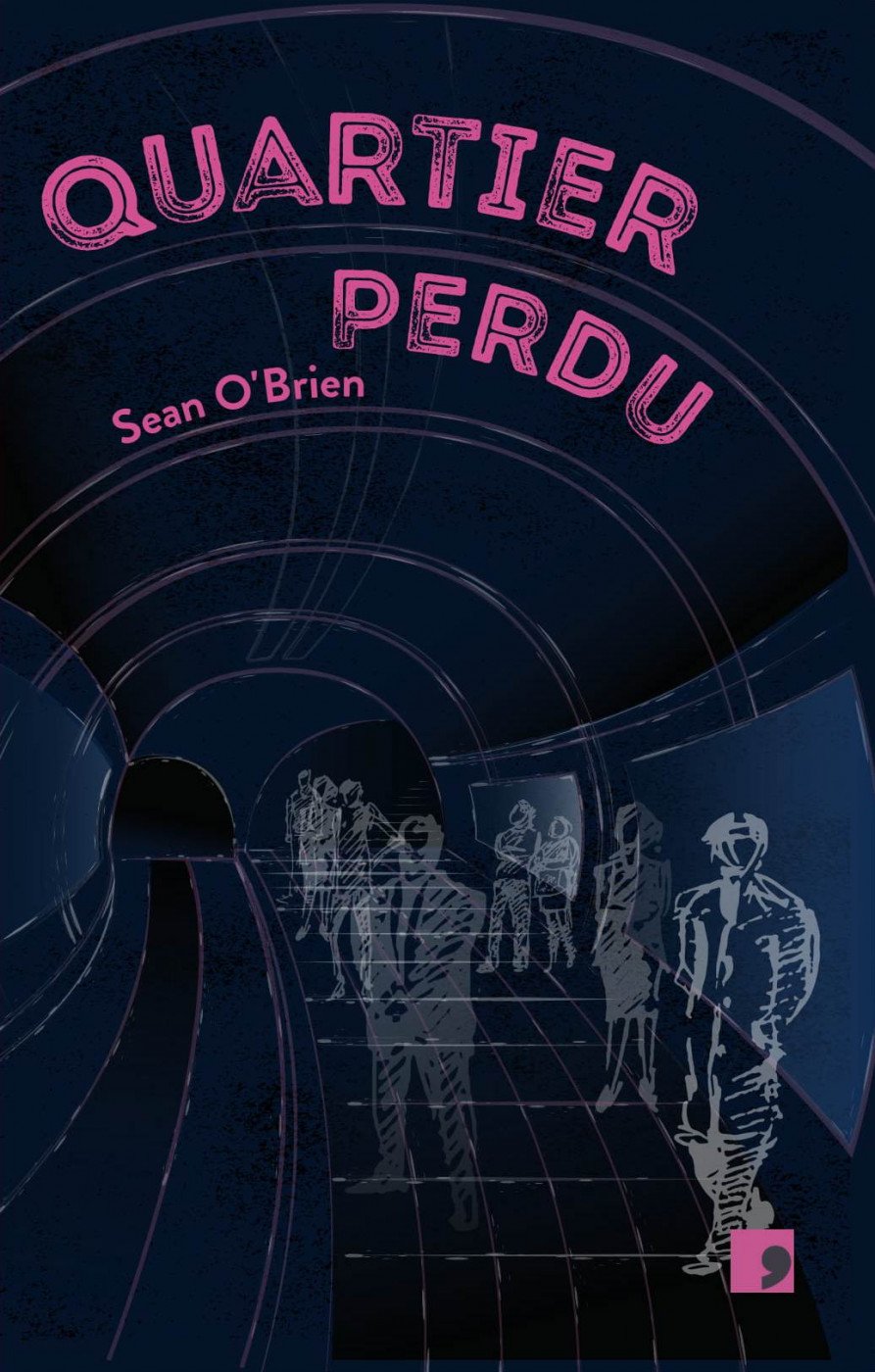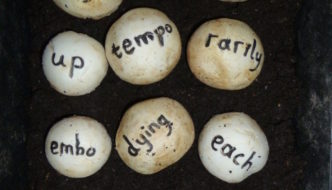
Quartier Perdu, Sean O’Brien. Courtesy of Comma Press.
Quartier Perdu, Sean O’Brien’s often excellent second collection of short stories, presents 18 variations on a gothic theme.
Witty and unashamedly literary, the best stories here are genuinely unsettling works in this well-established tradition, where it is difficult for the reader (and impossible for the viewpoint character) to tell whether a supernatural manifestation is an analogue for a psychological state or an uncanny happening in its own right.
The collection is organised into three sections of six stories. As the sections are simply numbered, the principle of the division is not brought to the fore, but sections one and three contain the most overtly gothic stories, while section two stays closer to the everyday. On the whole, the stories in the supernatural sections appear the more successful, though the depiction in ‘Certain Measures’ of the political engineering of a state of emergency through a staged atrocity is perhaps more chilling (and timely) than even the most terrifyingly diabolonian tales recounted here.
As the collection opens, Robert Aickman initially seems to be the presiding genius, as ‘During an Air-Raid’, moves between naturalistically-depicted war-time London and a ferryboat on a subterranean river that inevitably evokes Charon on the Styx. Even more Aickman-like is the second story, ‘The Sea God’. Set in an out of season Cretan resort, this shares a notion of the persistence of the Greek gods into the modern age with Aickman’s ‘The Wine-Dark Sea’.
Perhaps the strongest story in the first section is ‘Verney’s Pit’, where the tensions between two couples of school teacher friends with different attitudes to the approach of middle age lead to a disappearance. Whether this has been supernaturally assisted by a fairground traveller of the kind that people folk tales is left open.
In the second section, the atmosphere slackens with the first four stories. ‘What She Wanted’ might have been more effective in a different context as, in the style of Graham Swift’s ‘Last Orders’, the scattering of ashes is the occasion for revelations about the life of the deceased and the survivors. The only story that totally failed to engage, was ‘Ex Libris’, in which a critic suffers a dyspeptic nightmare at the hands of one of the authors he has savaged. Point taken, Mr. O’Brien!
With the aforementioned ‘Certain Measures’ the intensity picks up again. For a writer with such acute political sensitivity (as evidenced by his latest volume of poetry, Europa), politics is elusive in this volume, with this story its only overt intrusion. The epigraph from Peter Porter positions the narrator (a self-described “high-minded evildoer”) as a god, while his reading of Kleist during the story suggests a puppet-master. There is the sense that evil but all too human forces are manipulating a populace that is more than misled: it is complicit.
This is where we get closest to the post-Brexit politics that inform Europa, though the great cities of Europe (Paris, Brussels and Venice) provide the setting for the next three stories. Perhaps it is possible to see political allegory behind ‘Lovely’, where a man seeking liberty and escape is seduced into a dance of death.
The title story, ‘Quartier Perdu’, is for me the other highlight, along with ‘Certain Measures’. As in ‘The Good Stuff’, an academic consults the papers of a deceased writer with a satanic reputation, at the writer’s former residence. As she sinks into the atmosphere of the place, she becomes increasingly cut off from the world, with her letters to friends and family going unanswered, and her deteriorating health prevents any prospect of escape. The only break in the fog of her situation is the promised arrival of the ‘Markgraf’, but it soon becomes clear that this is, in fact, the devil himself.
The final few stories, though satisfying in themselves, strike more a minor key. I enjoyed the way that academic comedy in ‘A Green Shade’ took on a satisfyingly macabre tone at the end, gaining a fictional revenge on those who would remove (or worse, ‘make relevant’) the arts in university life. With the final story, the Aspen Grove, we are back to the gods and their arbitrary punishments making an appearance in modern life.
With prose as unobtrusively excellent as would be expected from such a lauded poet, this is a hugely enjoyable volume and a notable addition to the cannon of gothic literature. Even though it rarely engages directly with politics, the atmosphere of moral hazard, uncertainty and fear it evokes seems wholly relevant to our times. My only wish for the improvement of Quartier Perdu would be for the poet’s norm of a (slightly) slimmer volume, concentrating the intensity and sharpening the pace of this otherwise gripping collection.
Comma Press, 228pp., £9.99. Buy here
Filed under: Written & Spoken Word
Tagged with: book review, Comma Press, Quartier Perdu, review, short stories



Comments